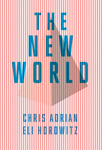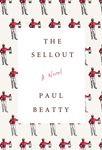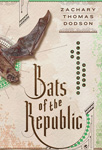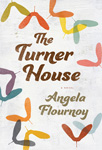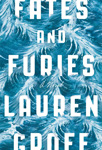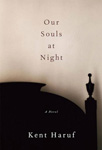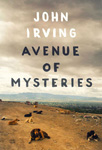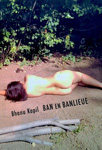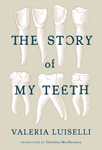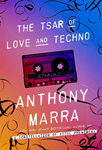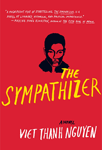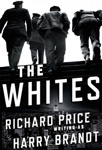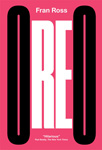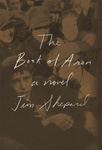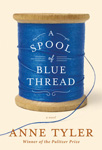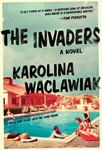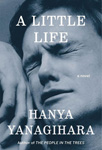by Chris Adrian and Eli Horowitz
Buy it at Powell’s »You Can’t Kill the Rooster
A Brief History of the Tournament of Books
by Angela Chen
It started as a joke. One evening in 2004, at a bar on Brooklyn’s Smith Street, TMN’s Rosecrans Baldwin, Andrew Womack, and Kevin Guilfoile were talking about literary awards.
Book awards, they agreed, were silly and nonsensical—how could one work of art ever be considered the best, above all others? Then there was the corruption factor. Judges for national prizes admitted to not reading their assigned books. The authors, nominators, and officiators all seemed to live in the same zip codes, graduate from the same schools, and share the same agents and panels and publishers and money interests. And more than that, the awards were beyond pompous, regarded as and regarding themselves as culture-markers, career-makers. The MacArthur windfalls somehow always landed in the laps of “geniuses,” people said—and still say—with a straight face.
And yet, despite the bullshit, awards still have value, sometimes. At least as a way to promote and discuss literature. So Kevin suggested starting a different kind of award—where the promotion and discussion of books would be the primary goal. That, and dumb fun. It would be set up with brackets like the NCAA basketball championship, a familiar format. Everyone would know who all the judges were, and the judges would be required to reveal any connections (agents, alma maters, and the like) with participants. Most importantly, judges would have to actually show their work and discuss their choices in public. Also, because awards have names—like Oscars or Razzies— the winner of this contest would receive The Rooster, named in honor of the writer David Sedaris’s brother, the subject of one of America’s funniest essays of all time. Also, the winning author would be given a live rooster, if desired. (As of press time, no winner has actually desired a rooster. In each case, TMN made a donation to Heifer International instead. Adam Johnson, the 2013 winner, came closest to accepting, but ultimately decided his neighbors would hate him.) “A couple of weeks later, after Kevin had flown back to Chicago,” says Andrew, “the rest of us were upstairs at Cedar Tavern near NYU and hashing out the details of how to manage the first tournament, which we threw together in about three weeks—now they take closer to six months. We’d all been emailing about naming the award, but hadn’t landed on anything yet that we were genuinely excited about. Kevin, who wasn’t privy to all the bad ideas the rest of us had in person, emailed the idea to name it after the Sedaris story, and we all immediately felt that it was perfect, and it was done.””
Thus began the Tournament of Books. The first year, the championship match pit Philip Roth’s The Plot Against America against David Mitchell’s Cloud Atlas, with the latter ultimately triumphant. The first site design and code was donated by Coudal Partners and the judges were mostly TMN contributors and editors alongside some old web friends, Bookslut founder Jessa Crispin and book blogger Maud Newton. Verdicts were short and forthright, such as Choire Sicha declaring that the best book of 2004 was “without a doubt, Joy Williams’s collection of stories, Honored Guest,” a book that had not even been in the brackets. “We really didn’t know what we’d started,” says Rosecrans. “It was fun and dumb. It doesn’t make any sense to compare novels to each other—they’re not vegetables. At the same time, you’re forced to really think about what makes something good, at least according to your own values.”
The very next year introduced the commentary booth, with Kevin and his old friend and co-conspirator John Warner weighing in on every match. This was fortunate timing, as one particular match gave Kevin the opportunity to admit that his first attempt at said commentary included phrases like “intellectual poseur,” “narrow as a childless panda’s urethra,” and “all the nuance and sophistication of a Rage Against the Machine baby-doll tee.” (John was more restrained, though he did accuse the judge, novelist Dale Peck, of not having read either book.)
Dale, tasked with judging Ali Smith’s The Accidental versus Ian McEwan’s Saturday, hated both books so much he refused to advance either one even by flip of a coin because “as meaningless as the title “novel of the year” is, neither of these deserves it.” As this would have messed up the rest of the tournament, he was finally persuaded to flip a coin after all. Luck smiled upon The Accidental, which advanced—and then went on to win the entire thing with a vote of 9 to 7. (Dale refused to vote in the championship match. No coin was tossed this time.)
Over the years the Tournament of Books grew and changed, and spawned imitators, many with the ToB’s blessing. (The first was Food52’s The Piglet—they even contacted us to ask for permission, which was really nice of them.) But the tournament truly reached a new level of fostering vibrant discussion about books in 2009, when reader comments were added. “We introduced comments reluctantly,” says Andrew. “We’d turned them off on TMN seven years prior, when online discourse was already pretty bad, and we’d never felt the urge to bring them back since—until that year’s tournament. Fans had been asking us to add a comments section, and we decided that since it would just be a month of active management, then we could at least experiment with it.”
That year, the debate over Roberto Bolaño’s 2666 was when the Tournament of Books “went from goofing around on the internet to goofing around on the Internet and having the Internet talk back to you,” says John.
Kevin and John both disliked the book in a way that compelled them to compulsively criticize it, but met their match in the form of Bolaño fans who came at them hard in the comments. 2666 marched forward round by round, lost, and was revived in the Zombie Round before losing again. “It was really the birth of our commentariat [hardcore fans who often read many if not all of the ToB’s books before the event even begins, in order to play along —ed.] and took the ToB to a different place,” says John. “ In fact, if you look at our commentaries before and after that year, you’ll see a concerted effort to not just have fun, but also have something interesting to say, not only because we realized people were listening, but because they had things to say as well.”
Other times, people did not at all like the things being said. Musician (and advice columnist) Andrew W.K., a judge in the 2010 competition, did not endear himself to readers when he chose Hilary Mantel’s Wolf Hall (the eventual winner) over Marlon James’ The Book of Night Women in part because he liked the cover and family tree more and wanted to “support intricate book production.”
Similarly, judge Natasha Vargas-Cooper did not endear herself to commenters when she wrote of feeling “betrayed” at being assigned to judge The Fault in Our Stars, having never before heard of John Green and then discovering “his rock-star status among the philis-teen horde.” Some commenters were horrified that she ended up advancing it after all. Others mused that “it just seems downright weird to have a judge that’s meaner than we are.”
(Pulitzer-winner Junot Díaz endeared himself to the ToB’s hosts when he agreed to judge in 2009—his novel The Brief Wondrous Life of Oscar Wao won the tournament the previous year—only if we made him a T-shirt, because after his win in 2008, his editor at the time—Sean McDonald at Riverhead Books—had gone out and made him a celebratory Rooster shirt at Kinko’s of extremely middling quality. So we commissioned a heavy-metal artist to make Junot a much nicer, more hardcore shirt and everyone was pleased. For what it’s worth, Mr. Díaz is one of three Pulitzer-winners who have served as ToB judges, alongside Anthony Doerr and Geraldine Brooks.)
But perhaps the most memorable moment was the 2011 championship rematch between Jennifer Egan’s A Visit From the Goon Squad and Jonathan Franzen’s Freedom. The conversation took place during a period of intense about sexism in the publishing industry what were arguably the two biggest books of the year. They had met in the semifinals, when Hamilton Leithauser advanced Franzen’s book. Then, as Kevin tells it, “Goon Squad fought back through the Zombie Round to force a rematch, which Egan won by one vote, and the entire thing was accompanied by this terrific conversation that was about these books, but also sometimes wasn’t.”
Though organizers take pride in calling the tournament “literary bloodsport,” actual reactions are far more genial, says tournament producer Nozlee Samadzadeh. John Green’s book lost in the final round in 2014, but he didn’t seem to care, tweeting that “I DON’T CARE THAT I LOST BECAUSE D.T. MAX VOTED FOR ME.” Similarly, Seth Colter Walls’s Gaza, Wyoming didn’t make the 2016 shortlist, which he said had a upside: “I can now now ride hard for Paul Beatty’s The Sellout.”
“I’ve always felt that the winner of this thing is entirely beside the point, unless the point is the fun of watching a novel go through the Rooster paddle line on its way to the final,” says Kevin. “It is interesting to me that pitting books in competition against each other is patently absurd, but rooting for books, the chief byproduct of this process, isn’t absurd at all. In fact it’s necessary for a healthy literary culture.”
Nozlee agrees. No matter what, “I still think we’ll be an anti-book-award just by merit of who we are and what we do,” she says. “For one, we’re largely arbitrary and completely transparent, which the Nobel Prize in Literature is never gonna be. Second, we’re watched like hawks by our commenters, who keep us honest. I love it when authors take being in the tournament seriously, but I think that’s more a testament to the value of being judged and discussed by one’s peers and readership (as opposed to by a mysterious and unknown panel) than anything else—and we love being the host to that experience.”
Weirdly enough, four Rooster winners (The Road, Oscar Wao, Goon Squad, and The Orphan Master’s Son) have gone on to win the Pulitzer Prize, though two eventual Pulitzer winners (The Goldfinch and All The Light We Cannot See) were on the shortlist and did not win the Rooster.
“The ToB, as a conceit, is fundamentally stupid,” says Rosecrans. “We can’t emphasize this fact enough. If you think it’s dumb, we think it’s dumber. We’re writers and authors and editors ourselves—we don’t see any value in calling one novel the best of the year, or trying to turn art into sports. At the same time, too much of literary culture is unthinking, fawning; a lot of it, especially in social media, is about the authors, not the books themselves. Plus, it’s easy to read a novel and say I liked it, or I didn’t like it, and put it away on the shell. But to pause for a second and compare that novel to another one requires that you figure out why you liked or disliked it and what that says about what you value. Art belongs to the beholder, of course. But to give that beholder a mic for a second, make them test themselves out loud—whether it’s the judges or the commentariat—and then have everyone discuss it out in the open—that’s what we find interesting.”
Winners by Year
2016: The Sellout by Paul Beatty
12-7 over The Turner House by Angela Flournoy
2015: Station Eleven by Emily St. John Mandel
15-2 over All the Light We Cannot See by Anthony Doerr
2014: The Good Lord Bird by James McBride
11-6 over Life After Life by Kate Atkinson
2013: The Orphan Master’s Son by Adam Johnson
14-3 over The Fault in Our Stars by John Green
2012: The Sisters Brothers by Patrick DeWitt
10-6 over Open City by Teju Cole
2011: A Visit from the Goon Squad by Jennifer Egan
9-8 over Freedom by Jonathan Franzen
2010: Wolf Hall by Hilary Mantel
9-8 over The Lacuna by Barbara Kingsolver
2009: A Mercy by Toni Morrison
11-6 over City of Refuge by Tom Piazza
2008: The Brief Wondrous Life of Oscar Wao by Junot Díaz
12-4 over Remainder by Tom McCarthy
2007: The Road by Cormac McCarthy
15-2 over Absurdistan by Gary Shteyngart
2006: The Accidental by Ali Smith
9-7 over Home Land by Sam Lipsyte
2005: Cloud Atlas by David Mitchell
10-5 over The Plot Against America by Philip Roth
